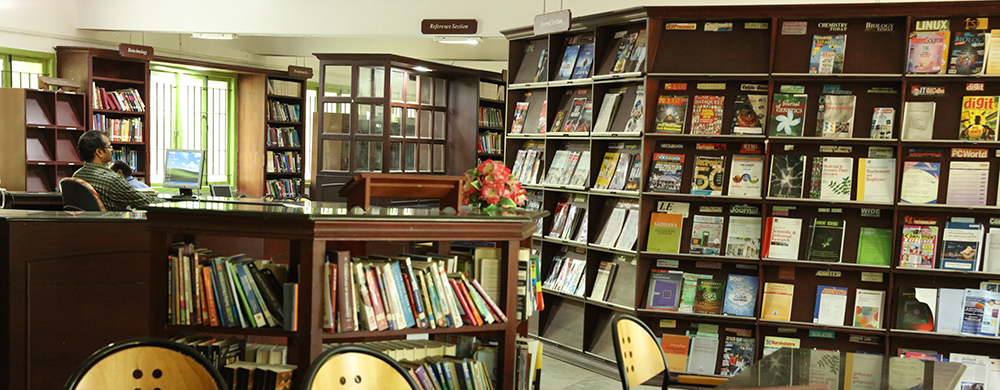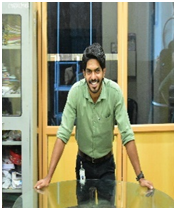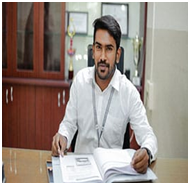- Examinations
- Admissions
- PCS
- IQAC
- Mandatory
- UGC 12-B
- ANNUAL REPORT 24-25
- ADMISSION GUIDELINES
- EXPENDITURE AND INCOME STATEMENT
- TELEPHONE DIRECTORY
- ICC
- GENDER EQUITY
- ANTI-RAGGING
- GRIEVANCE REDRESSAL CELL
- FOR DISABLED LIFT AND RAMP FACILITY
- ADMISSION REFUND POLICY
- AISHIE
- EXTERNAL AUDIT REPORT
- ACADEMIC CALENDAR
- WEEK
- CODE OF CONDUCT
- PROGRAMME OUTCOME
- INSTITUTIONAL PERSPECTIVE PLAN
- STATUTORY BODIES
- Cells and Clubs
- Public Self Disclosure
- RTI Act
- NIRF

Forensic science
Department Overview
About the department
Forensic science is the application of scientific knowledge to legal problems or proceedings. In law enforcement, forensic science is largely concerned with testing physical and biological evidence to determine objective facts about what happened, when it happened, and who was involved. As a result, forensic science capability is important because it may yield information that is more accurate, precise, and reliable than eyewitness testimony or even confessions. One such information, in turn, can increase the success of both investigations and trials in determining the facts of the case.
CMS is an institution under Bharathiyar University that has offered Forensic Science as an optional subject for BSc undergraduates since 2023, with the mission of providing quality education to raise crime & criminal justice awareness. The students are taught the fundamental principles of crime, as well as scientific applications on crime scene evidences. Forensic Sciences includes essential components such as Forensic Pathology, Psychiatry, Psychology, Anthropology, Forensic Medicine and Odontology (Dentistry). It is chiefly laboratory-based science consisting of related elements of Chemistry, Biology, Toxicology, Ballistics, the Science of Fingerprinting, Questioned Documents and Impressions.Through laboratory experiments, students gain practical expertise in the relevant fields.
To facilitate experiential learning, students are taken on field trips to significant forensic laboratory and forensic locations such as a police station, and cyber police station, simulated crime scenes etc.
Objectives:
- To emphasize the importance of scientific methods in crime detection.
- To disseminate information on the advancements in the field of forensic science.
- To highlight the importance of forensic science for perseverance of the society.
- To review the steps necessary for achieving highest excellence in forensic science.
- To generate talented human resource, in accordance with latest requirements of forensic science.
- To provide a platform for students and forensic scientists to exchange views, chalk-out collaborative programs and work in a holistic manner for the advancement of forensic science
Methodology of Teaching / Teaching Process
- Lecture (teacher-centred) – In this approach, it is the teacher that is the focus. Students either passively take notes or ask questions through the teacher’s presentation in which audio, audio-visual communications are also included for easy understanding.
- Hands-on activities (student-centred) – Break out the experiment materials! Whether the students work in small groups or by themselves, the lesson has a clear question that students need to find an answer to with the teacher acting as a facilitator.
- Project Based learning (student-centred)- students will be engaged over an extended period of time in researching their topic, designing their experiment or model, writing a scientific report or creating a poster and presenting their findings in a short talk.
- Peer group mentoring- Students will be engaged in presenting their creative ideas on presenting a topic & share their views which helps in their personality development.
Key Features
- To facilitate experiential learning, students are taken on field trips to significant forensic science laboratories and medical colleges.
- Apart from academic learning students are provided with hands on training on various branches of forensic science.
- To enrich professional development & skill students are dealt with seminars & conferences.
Student Clubs
Lorem
Lab
Lorem
Faculty
Events
Lorem
Industry Connect
Providing Internship at various Government organization.
- Police station
- State Forensic Science Laboratories
- Central Forensic Science Laboratories
- Medical Colleges (Dept. of Forensic Medicine)
Download Brochure
Lorem





